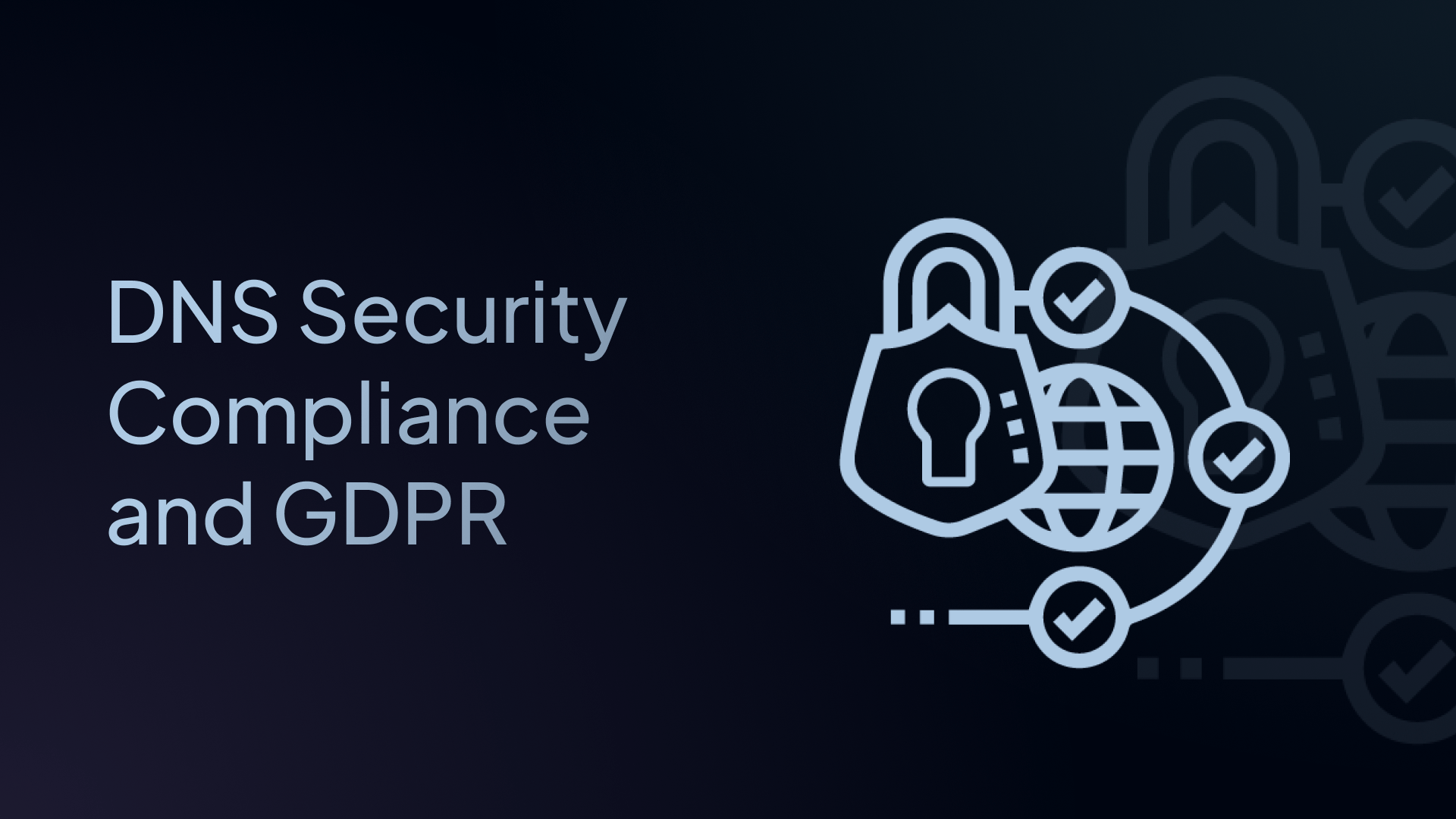Most people never think twice about DNS. You type a web address, press enter, and magic happens. But under GDPR, DNS is no longer invisible. Every query your users make can expose personal behavior patterns and trigger data protection obligations.
DNS requests are not harmless metadata anymore. They are behavioral fingerprints. GDPR treats this information as personal data, which means your DNS infrastructure can either protect your users or quietly put you at risk.
In this blog, we will break down why DNS security is critical under GDPR, the hidden ways DNS mishandling can get organizations into trouble, and how Control D’s privacy-first DNS architecture helps companies stay compliant without sacrificing speed or flexibility.
First, let’s dive into the key facets of GDPR, to understand how DNS security fits into its parameters.
Key Principles of GDPR
Lawfulness, fairness, and transparency: Processing of personal data must be lawful, fair, and transparent to the data subject.
Purpose limitation: Data collected should only be used for specific purposes that are clearly stated and legitimate.
Data minimization: Organizations should only process the data that is absolutely necessary.
Accuracy: Personal data should be accurate and kept up to date.
Storage limitation: Data should be stored no longer than necessary.
Integrity and confidentiality: Personal data must be processed securely, and users must be able to grant and revoke consent freely if needed.
Accountability: Organizations should be responsible for GDPR compliance and be able to demonstrate it.
DNS Security is Critical Under GDPR
DNS may seem harmless on the surface. It is just domain lookups, right?
Not anymore.
Every DNS request reveals where a user is going online, when they go there, and often why. If someone queries mentalhealthsupport.co.uk at 3AM from London, that is not just metadata; it is sensitive behavioral data.
Under GDPR, anything that can identify an individual directly or indirectly counts as personal data.
That means DNS logs, especially when paired with IP addresses or timestamps, fall squarely under GDPR’s protection rules.
The consequences are not hypothetical. Regulators have flagged metadata misuse in several investigations. Companies that store full DNS logs indefinitely or route European queries through non-compliant infrastructure face real risks: financial penalties, lawsuits, and lost user trust.
- Stores no identifying DNS logs unless users specifically configure logging for diagnostics.
- Offers customers control over server selection, including EU-based, GDPR-aligned endpoints.
- Encrypts DNS queries using DNS-over-HTTPS (DoH) or DNS-over-TLS (DoT) across the board.
When your resolver architecture respects privacy by design, GDPR compliance is not a retrofit; it is baked in.
5 Ways DNS Can Violate GDPR (Without You Realizing It)
DNS often gets overlooked during GDPR audits because it feels low-risk. But in reality, mishandling DNS data is one of the easiest ways to accidentally breach GDPR.
Here are five DNS risks that can land you in hot water:
1. Over-Logging DNS Queries with IP Addresses
Many default DNS server configurations record everything: the query, the source IP, the timestamp. If you store full DNS logs tied to user IPs, you are collecting personal data.
Unless you have a lawful basis for that collection (like user consent or a security exception) and strict retention policies, this practice likely violates GDPR Articles 5 and 6.
Control D Approach: Control D customers can explicitly disable all DNS query logging. Even when logs are enabled, IP addresses are stripped or pseudonymized where appropriate.
2. Sending DNS Queries Across Borders Without Safeguards
Forwarding EU users' DNS traffic to servers outside the EU without standard contractual clauses (SCCs) or another GDPR-approved transfer mechanism creates compliance issues.
This risk became even sharper after the Schrems II ruling, which invalidated Privacy Shield. DNS data flowing unchecked to the United States is a violation waiting to happen.
3. Using DNS Providers That Sell or Profile Traffic
Some public DNS services offer "free" resolution but monetize users by profiling their queries. This violates GDPR’s transparency, lawful processing, and purpose limitation requirements.
In 2022, an ISP in Belgium faced an investigation after routing customer DNS traffic to a third-party service that injected marketing analytics into query data.
4. Keeping DNS Logs Forever Without Purpose
Even if DNS logs start life as necessary for security troubleshooting, GDPR requires data to be deleted when no longer needed.
Keeping detailed DNS records "just in case" indefinitely violates the storage limitation principle (Article 5(1)(e)).
Control D Approach: All optional logs have user-defined retention periods. Control D encourages customers to adopt short retention windows unless operational needs justify otherwise.
5. Failing to Disclose DNS Handling in Privacy Policies
Transparency is a core GDPR obligation. If you collect DNS data and do not explain it clearly to users, you breach GDPR’s transparency requirements (Article 13 and 14).
A vague "we may collect information" statement does not cut it.
What GDPR-Compliant DNS Looks Like
A truly GDPR-aligned DNS service follows these pillars:
- Minimal Data Collection: No identifying information unless explicitly needed.
- Encryption in Transit: DoH or DoT used to secure DNS queries.
- EU Data Residency Options: Ability to pin DNS queries to EU infrastructure.
- Short or Zero Retention: No long-term storage of user query histories.
- Transparency: Clear, public privacy policies covering DNS specifically.
- Security of Processing: DNS resolver infrastructure hardened against unauthorized access.
Control D satisfies all of these pillars natively. Unlike traditional ISPs or free DNS services, Control D treats DNS metadata as the sensitive personal data it is — not as a hidden monetization layer.
Conclusion: DNS Security Is Privacy’s Front Line
DNS sits at the intersection of cybersecurity and data protection. It is no longer a back-end utility; it is a frontline privacy surface.
Organizations that ignore DNS when planning GDPR compliance expose themselves to unnecessary regulatory risk. Those that modernize their resolver architectures, encrypt their traffic, minimize their logging, and choose privacy-first partners like Control D will not just avoid fines — they will build stronger trust with users, clients, and regulators alike.
Strong DNS security is no longer optional. It is the price of doing business in a world where privacy rights matter.









